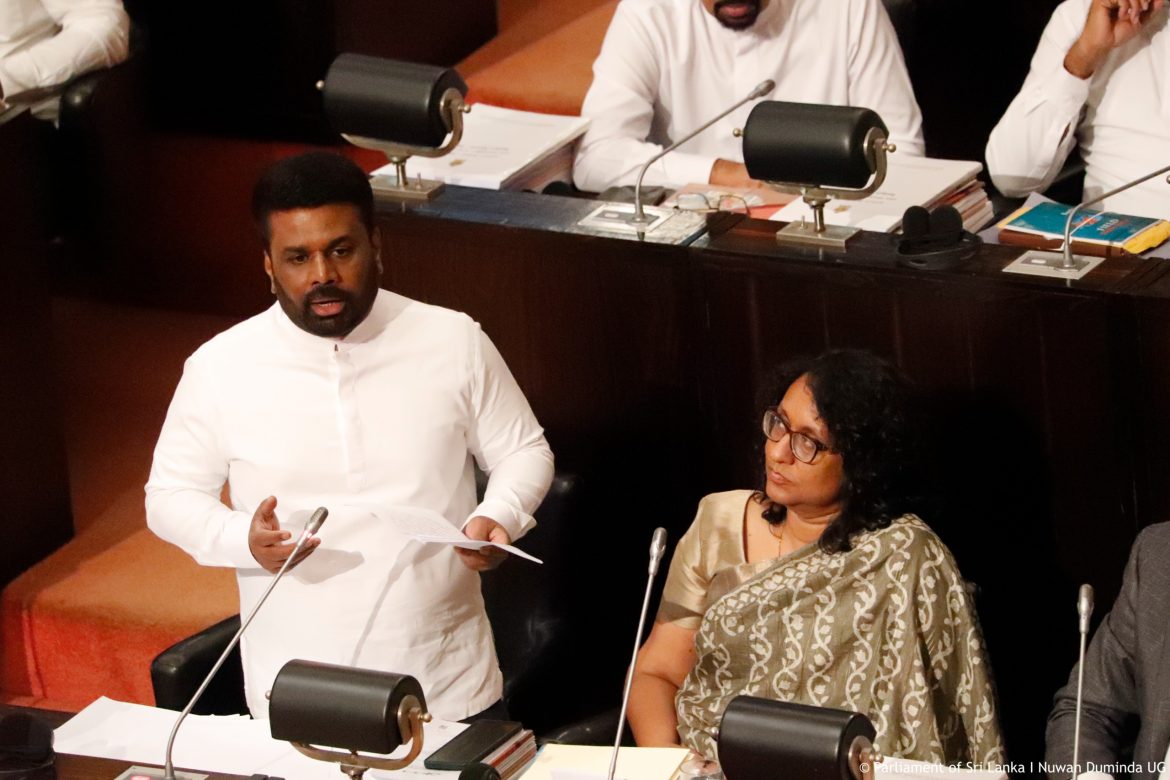Dissanayake's first budget includes economic reforms (in Tamil areas as well)
The new government's economic plan includes incentives for industry, support for workers and a commitment against corruption. These measures are necessary to obtain loans from the International Monetary Fund and ensure the country's financial stability after a long period of crisis. Northern regions will also receive investments to revive manufacturing.
Colombo (AsiaNews) – Sri Lankan President Anura Kumara Dissanayake presented the 2025 budget yesterday, the first of his government and the 79th in the country’s history.
Deemed crucial to reboot the economy after a severe financial crisis, the budget bill introduces structural reforms (in compliance with requests from the International Monetary Fund), and support measures for citizens and incentives for investment, including in the mostly Tamil northern regions.
In presenting his budget, Dissanayake, who is the leader of the National People Power (NPP) coalition, but also holds the finance portfolio, stressed his government’s commitment to transform Sri Lanka into a fairer and more prosperous country.
“The root cause of corruption will be eradicated from the beginning. A prosperous Sri Lanka will enable everyone to fulfil their goals. We invite Sri Lankans living abroad to join us,” the president said in a three-hour speech.
“There will be no more racial conflicts in this country. Religion, ethnicity, or gender will not be factors of division from now on. We will all unite to build the country and respect one another. We are proud to call this beautiful, sacred land our motherland,” he added.
Key initiatives include the creation of three new industrial zones in the Northern Province and the introduction of a minimum daily wage of 1,700 rupees (US$ 5.75) for estate workers.
The aim is to achieve some economic stability, and stimulate growth, which is expected to reach 5 per cent this year.
“Never has Sri Lanka had a chance like this to catch up with the modern world," Dissanayake explained. “Most countries go through what is known as a 'lost decade' following a sovereign default. However, we have achieved stability to a certain extent."
About 500 million rupees (US$ 1.7 million) will go to the chemical, rubber and auto industry to reduce imports and boost local manufacturing.
The northern city of Paranthan is being proposed for chemical production; a state-owned chemical factory has been already operating there since 1954.
The government is also proposing setting up five industrial parks – two in the north, Kankesanthurai (KKS) and Maankulam; one in the northwestern, Iranawila; one in the southern district of Galle; and one in the eastern port district of Trincomalee.
For the automotive and rubber sectors, an investment of 1,500 million rupees is planned.
“A substantial investment in the locally value-added automobile manufacturing/assembly sector and rubber product manufacturing is crucial to meet the demand necessary for the components manufacturing industry to be competitive in the export market,” reads the budget document.
Ramanathan Archchuna, a Tamil MP from the northern region, welcomed the measures. During the country’s civil war, northern Sri Lanka saw most of the fighting and has long been neglected by several governments.
“Actually, we are very happy that the NPP government has given a great amount of money to the Northern Province and [about] the visit of the honourable Prime Minister and the President to the northern part of the country. This is historically remarkable and we are very thankful to you.”
The 2025 budget also includes a series of legislative reforms to ensure greater efficiency and attract foreign capital.
Eleven new laws are being proposed, including a new Act on the Exchange of Information between State Institutions to improve administrative efficiency and revenue collection; the Investment Protection Act, aimed at creating a favourable environment for foreign investors, and a State Business Enterprises Management Act, to limit political influences and ensure transparent and efficient management.
The package of reforms reflects the commitments made with the International Monetary Fund in order to receive an aid package of almost US$ 3 billion.
According to Moody's Ratings, the budget spending presented by Dissanayake will lead to a larger fiscal deficit and slower-than-expected fiscal consolidation. Spending is estimated at 21.8 per cent of gross domestic product (GDP), while revenue will be 15.1% of GDP.
The success of the reforms will depend on the government’s ability to implement them in a context that is still fragile.
16/07/2024 18:38
02/09/2022 17:59







.png)










